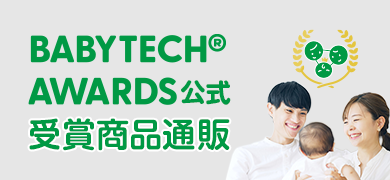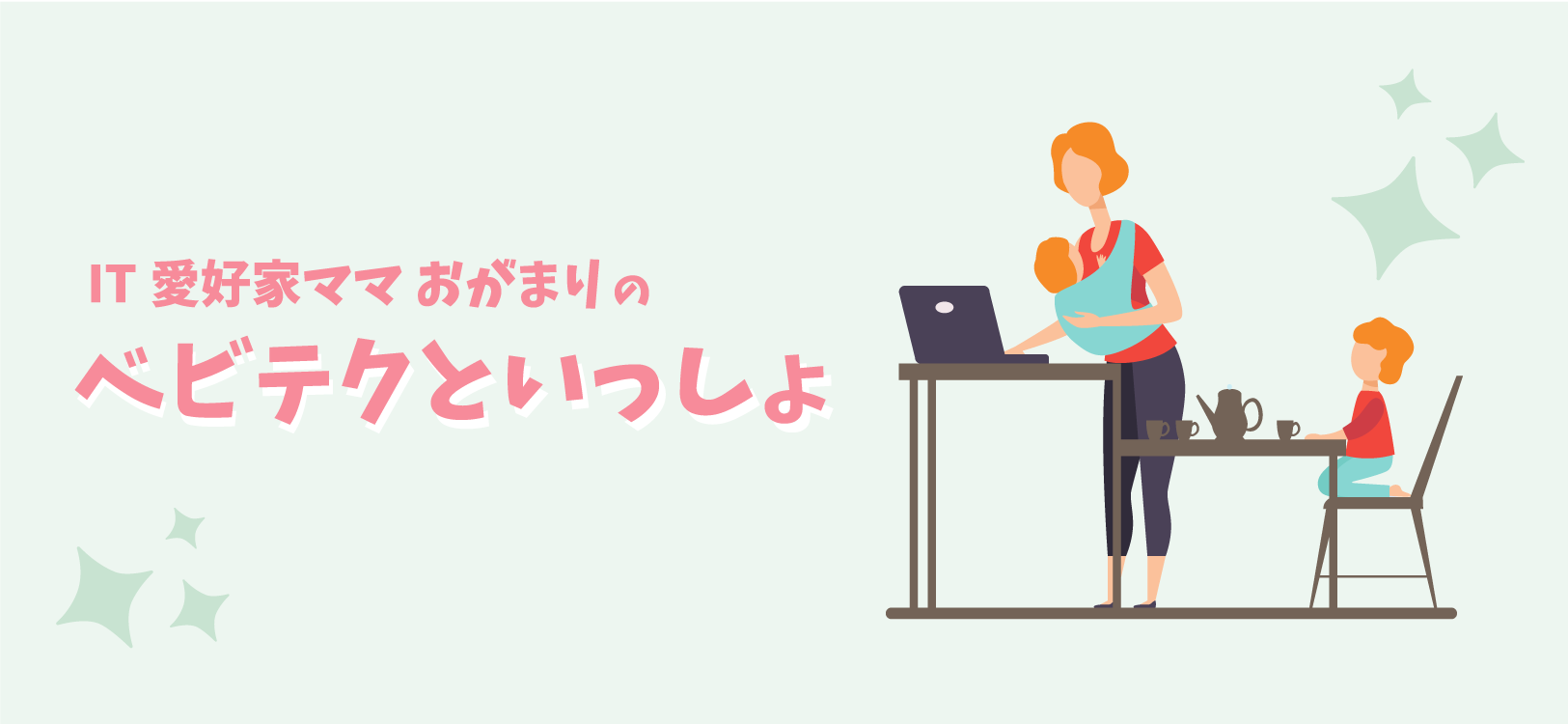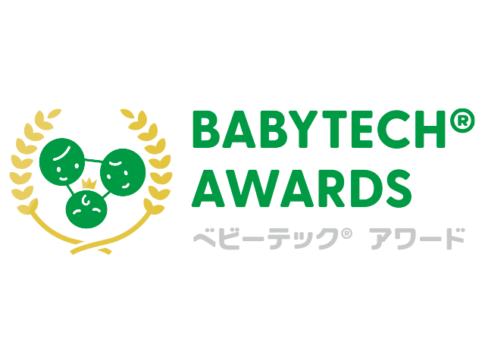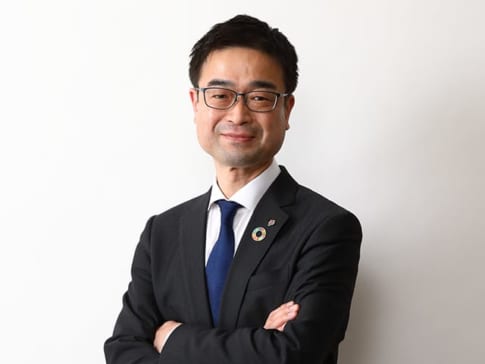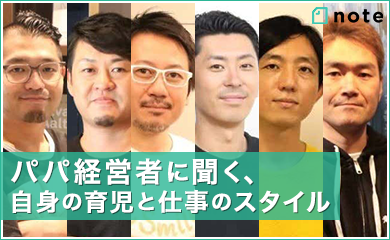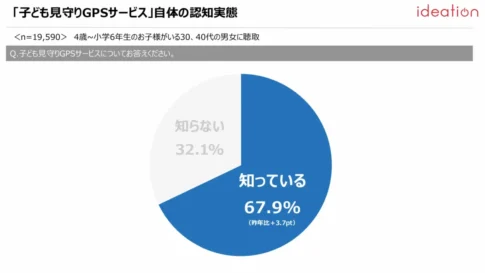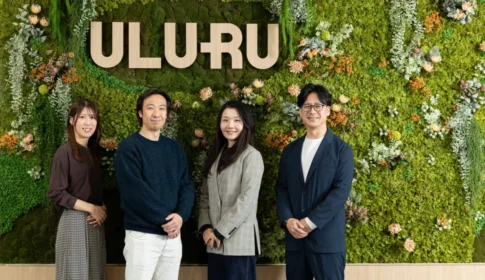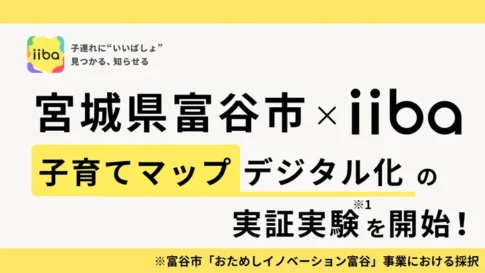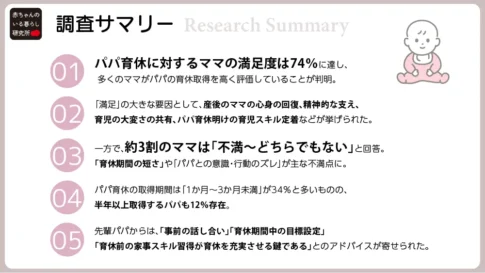*This article is based onArticle reprinted from our web media "Papa SmileIt is.
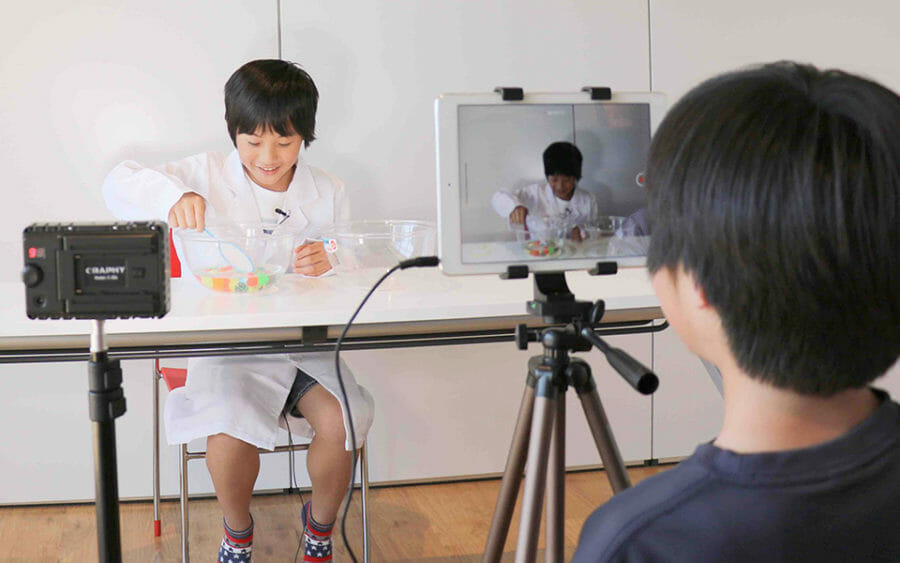
- Acquire truly useful "Internet literacy" through the practice of YouTube video distribution.
- Develop not only your IT skills, but also your planning, conceptualization, and presentation skills
- Family communication" will be activated, for example, "Parents and children will start editing and distributing videos together.
(We spoke to...)
COO, FULMA Corporation
Takeshi Chujo
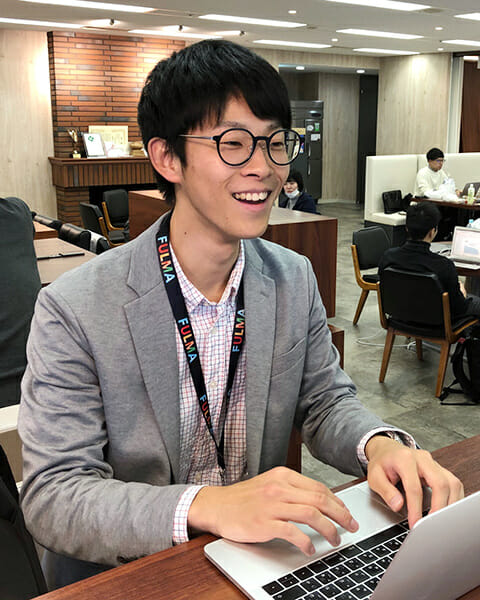
Children's "attitude toward learning" is completely different, "YouTuber Academy
Editorial:What are the children learning at YouTuber Academy?
Nakajo:The YouTuber Academy targets children in grades 1 through 6 of elementary school, and there are four main things we want them to learn. Of course, we focus on video shooting and editing techniques, but our main emphasis is on Internet literacy (what to pay attention to when using the Internet). We also emphasize the development of "planning and conceptual skills" and "presentation skills. We have created the curriculum with the hope that students will have a "meta-viewpoint" that allows them to look back at the video of themselves speaking and think of ways to make it easier to convey their message. The school's approach is a cycle of "Internet literacy lecture → planning a project based on an assignment → filming and editing → presentation of the video," which takes place once every three months. Therefore, we will make four videos per year. For example, let's make a "video using slime" in the first three months, and a "video introducing toys" in the next three months, and so on. At first, there is a lot of time for input, such as learning Internet literacy, but as the second half of the year progresses, there is more time for output.
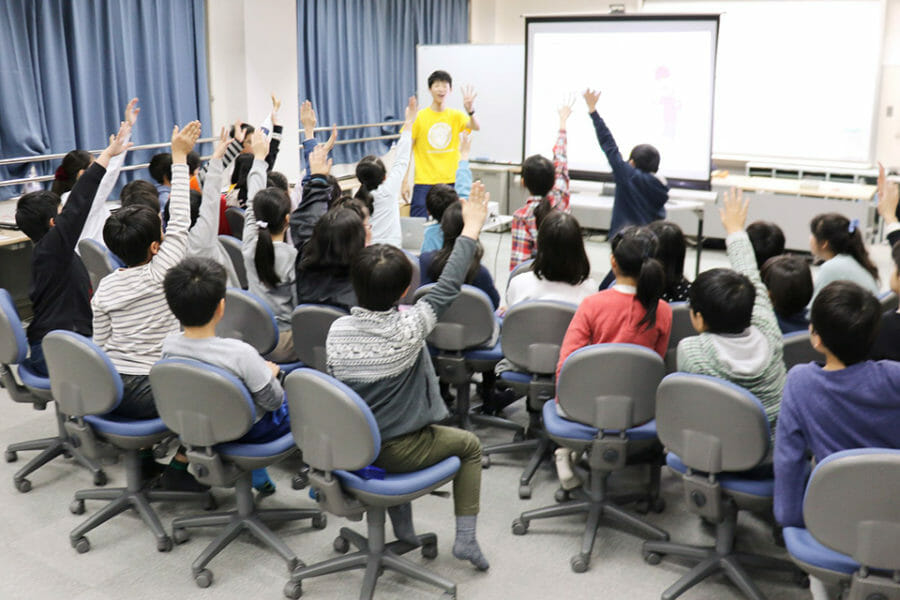
Editorial:Looking at the contents of the text used, it is at a level that adults should also learn.
Nakajo:The text is based on materials published by the Ministry of Internal Affairs and Communications as well as materials from IT companies. Since these materials are generally aimed at middle and high school students, we have modified them for elementary school students, and have tried to make them easy to understand from the perspective of video distribution as a YouTuber. For example, in order to convey the concept of "portrait rights," we use specific situations such as "What should I do if someone other than myself is in the picture when I am filming a video in the park?

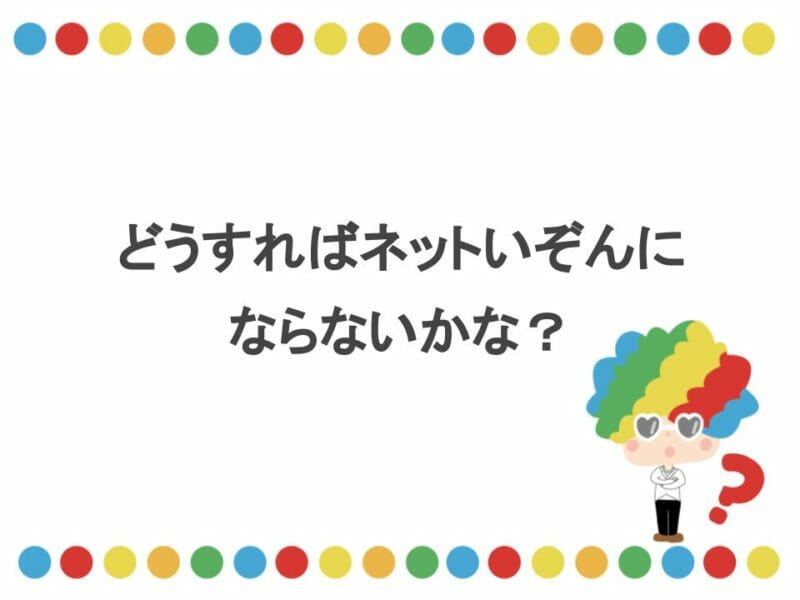
Editorial:Looking at the pictures, it is amazing to see how the children are engaged in the class. I can see that they are leaning forward and learning with vigor and enthusiasm.
Nakajo:There is a lot of difficult content about Internet literacy, but children who know that they will be making videos later on consider such knowledge as necessary knowledge, and they seem to be learning exactly what they need to know "up front. And the point we pay attention to when we teach about "Internet literacy" is the awareness of "mastering the Internet. Conventional Internet literacy education has been biased toward "not letting people use the Internet as much as possible" and "filtering (restricting access to the Internet). However, I believe that it is nonsense to educate the future generation to "detach themselves from the Internet." Rather, it is more important to educate them about the dangers and risks, and have them think about how they can use the Internet as a weapon against themselves. It seems that school education has not caught up with this point of view, and we have received requests from elementary schools for lectures on "Internet literacy" alone, without video production.
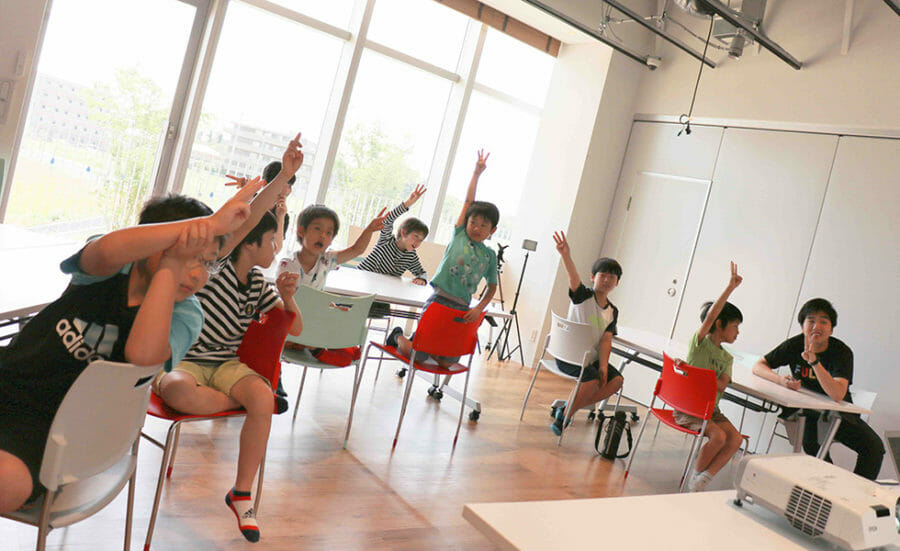
What the kids were really into: ...... it was "YouTubers"!
Editorial: When did the YouTuber Academy start?
Nakajo:In March 2017, we started "YouTuber Academy" as a one-off event in the form of a workshop. From 2018, we have prepared 5 classrooms in the Tokyo metropolitan area, and have started a style where students attend regularly as so-called "lessons". There are two types of classes: "1-hour class" and "2-hour class," which are held 40 times a year and 20 times a year, respectively.
Editorial:At 40 times a year, that's almost every week.
Nakajo:The type of classes we are allowed to do as part of the curriculum for "school-age children" are held almost every weekday. One of them is an international school, where video production is also taught in English.
Editorial:That is a great instructor.
Nakajo:All instructors at YouTuber Academy are FULMA members, six in the Kanto region and two in the Kansai region. The international school classes mentioned earlier are handled by our English-speaking members. We do not own classrooms, but hold "YouTuber Academy" at "facilities of businesses that have classrooms," including childcare facilities for school children, so we do not need to be stationed there to manage the facilities. Thanks to this, we are able to operate even with this small number of students. Also, until now, all members of FULMA have been university students, but this March, three members, including myself and the representative, will graduate, giving us more time to invest in the business. Therefore, we believe it is the right time to expand the number of classrooms starting in 2019.

Editorial:What was your motivation for starting the YouTuber Academy?
Nakajo:When FULMA Corporation was established in July 2016, its initial business was to deliver "nature experiences" and "ceramic art experiences" to children. The business was in line with the company's philosophy of "giving shape to children's 'I want to do it! However, there were many companies offering similar experiences, and we were faced with the gap of not being able to do "what children really want to do" (......). From there, we began to consider various options and launched "YouTuber Academy" in March 2017 as a place where children can safely learn and experience video production.

Editorial:What the children really wanted to do was not "nature experience" or "pottery experience," he said.
Nakajo:In fact, when I listened to the children's voices, I could clearly sense the popularity of "YouTubers" and the lack of places where they could learn to properly produce and edit videos was obvious to me if I looked at society. In fact, at the time, there was a general tendency to view children's desire to "try it" as a negative thing. That is why we started "YouTuber Academy" to create a place where children could safely and happily create videos while managing the dangers of accessing the Internet.
Children grow up strong through YouTuber Academy
Editorial: What changes do you see in the children who attend here?
Nakajo: What we want for our children is to develop a sense of "self-affirmation" and "self-efficacy," rather than to learn video shooting and editing skills. This is our company's philosophy, but we believe that the experience of being supported in what they want to do when they are children and having done something on their own will give them a great deal of confidence, which in turn will lead them to take on the next challenge and support them in the future. In this context, I was delighted to hear from one of the parents that his child, who had been a shy student at YouTuber Academy, ran for the position of cheer leader at his elementary school and did a great job. I wondered if the "YouTuber Academy" helped him learn to express what he wanted to do and to accomplish it. We also often hear that the students "started to speak up more actively in their classes at school.
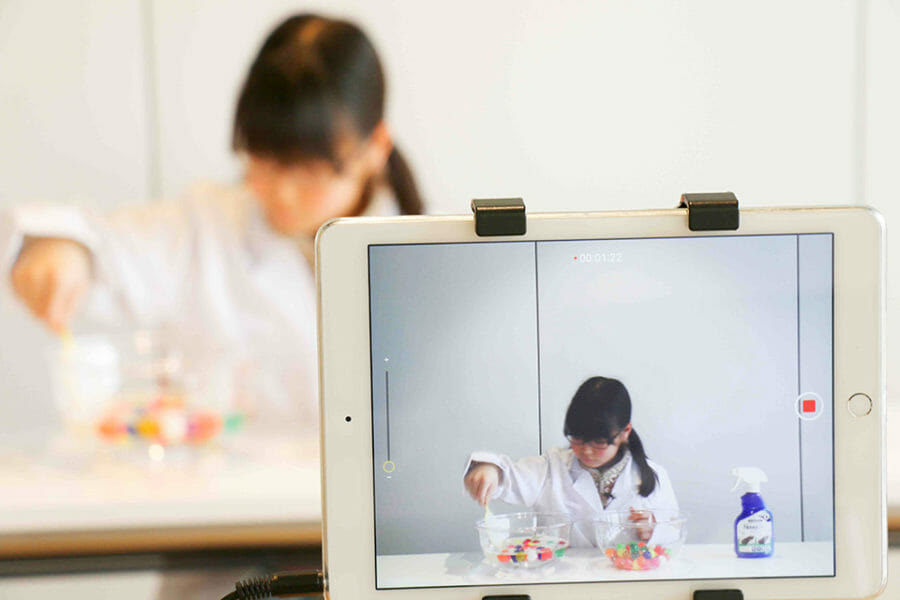
A "father who is a poor communicator" and his child start making videos together!
Editorial: Any other feedback from parents?
Nakajo: Children who attend "YouTuber Academy" soon become better at shooting and editing videos than their parents. Then, especially among fathers, there are many cases where parents and children start learning how to shoot and edit videos together, saying, "I can do it, too. In fact, I once had a father and his son edit a video of a family vacation during the summer holidays and show it to me. We also believe that shooting and editing videos can be a new form of "Sunday carpentry. I think there is a similarity in that parents and children can create something together.

Editorial: Can you tell us about the future development of your company?
Nakajo:Now, we would like to expand the "YouTuber Academy" classes more nationwide. In addition to "video production," we believe that there are many other things that children want to do but have not yet been able to do, and we would like to sequentially create a place to support them as a "new service. For example, we see "e-sports" as similar to the "YouTubers" of a few years ago, and are considering it.
<After the interview
It is still fresh in our minds that a few years ago "YouTuber" was chosen as the "No. 1 job parents do not want their children to have," and at the same time "YouTuber" was chosen as the "No. 3 job children want to have. However, I felt that there are few better environments for children to learn and grow through "doing what they want to do as much as they want to do". It would be more dangerous for children not to learn the knowledge they need in the coming "Internet society," and we should not deprive them of opportunities to develop their motivation and confidence based on the common sense and sensibilities of their parents' generation.
The YouTuber Academy also offers a trial course, so if you are interested, please try it out for yourself.
YouTuber Academy Official Website
https://youtuber-academy.jp/



